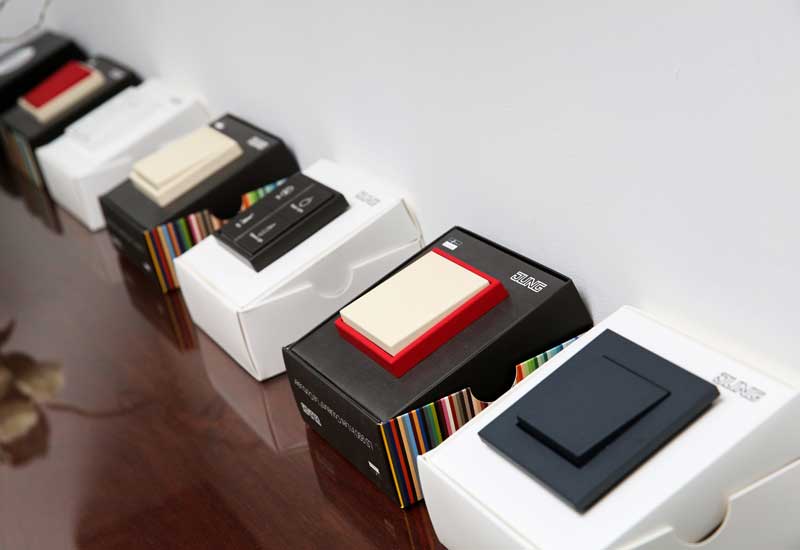Tarek Zakaria, managing director at Jung Middle East DMCC Dubai, UAE
Dilip Sinha, regional general manager of Environmental and Energy Solutions, Honeywell Home and Building Technologies, Middle East, Turkey and Africa (META)
What direction is the hospitality industry moving towards when it comes to technology trends?
Tarek Zakaria: As technology goes, any advancements in the field are aimed primarily to enhance the convenience of the user. And in an industry focused on convenience as much as hospitality, it must be affected to a great extent by these trends and aims to readily integrate them. The latest technologies are deeply rooted in sensing and automation. Nowadays, an example of that is the interest of high-end hotels to integrate motion/presence sensors in rooms instead of the conventional room card switches. This allows for the detection of guests, triggering the energy saving scenes while maintaining standards. i\]Interest in automation being implemented in conventional layouts has been highlighted from guest feedback; it has been shown that using touchscreens and mobile devices are not always preferred, and guests are more inclined to use buttons and switches.
Dilip Sinha: The industry is moving towards a more green, safe and productive future. In fact, the future potential — and the current progress — of regional hotels was highlighted in a recent study by Honeywell, researchers Nielsen and global advisors Ernst & Young in 2016. The Middle East Honeywell Smart Building Score showed that hotels — ranked second after airports — are leading the way for smart buildings in the region compared with other surveyed industries (hospitals, office and residential buildings, education and retail). Hotels scored the second highest across all verticals, leading in all categories that are considered to make a building smart — green, safe and productive — scoring an average of 57 out of a possible 100. Whilst showcasing the overall “smartness” of the region’s hotels, the study also revealed opportunities to drive improvements. The survey evaluated 620 buildings across: Abu Dhabi, Dammam, Doha, Dubai, Jeddah, Kuwait City and Riyadh. There are a range of technologies and trends that could be considered game-changers for the industry. One of these mega trends includes hotels becoming more energy efficient, so they can be environmentally cleaner and save money on bills, while having a positive impact on regional sustainable development plans. Guestroom technology is also key; hoteliers across the region continue to upgrade facilities to elevate their guest’s experience and stay ahead of the competition.
In what ways can technology and its use help a property distinguish itself from ITS competition?
Tarek Zakaria: A property could distinguish itself by integrating various new technologies. For example, energy saving techniques through light and air conditioning control helps in establishing an environmentally-friendly image. Also, another way to distinguish a property is by increasing guest interaction with the controls in the room. This adds a factor of intrigue for guests and makes a lasting impression.
Dilip Sinha: Given the business benefits of smart buildings, hotels that invest in smart, connected technologies are ultimately investing in a more enjoyable guest experience. An efficient, connected hotel is also a more productive asset and hotel operators can gain an edge over competitors by making their processes more efficient through technology.
Are operators overloading the number of gadgets and gizmos placed in rooms?
Tarek Zakaria: While the need for new technologies is present and growing in the region, it is essential to keep the amount of gadgets used at a level which any guest can feel comfortable using. This sheds light on the importance of incorporating technologies while ensuring the layout and labelling of the gadgets is clear and easy to deal with.
DILIP: The point of technology in hotels is not to overwhelm guests. Technology should be implemented so that guests have a more personalised and enjoyable stay and that operations can be as efficient as possible. Technology that integrates naturally and aesthetically into a hotel’s surroundings is key to delivering the right service.
What are the results of your company’s r&d efforts recently?
Tarek Zakaria: At Jung, research and development has been the highlight throughout our 105-year-operation. The foundation of the company was based on the research of the pull switch with 1/8 rotation. As for recent innovations, Jung has introduced a series of thermostats with a wide range of features and designs to revolutionise the way thermostats are perceived in the industry visually and practically. The company has thermostats with displays and automation control push buttons all integrated into a single unit that fits in the conventional installation back boxes, in addition to having the options of horizontal or vertical displays. All these units can be produced within the same design range of the other wiring accessories in a certain project for a cohesive and eye-catching look and premium quality feel.
Dilip Sinha: Honeywell provides comprehensive, integrated technology solutions that help streamline hotel operations, reduce operating costs while ensuring guests stay secure and comfortable. The customer-centric solutions cover a range of integrated products, from cable management systems and high quality wiring devices to guest room management systems, building management systems as well as lighting controls, valves and pressure sensors — all linked to energy efficiency and helping to reduce energy costs. Honeywell’s Inncom solutions are flexible, customisable, efficient and dependable. The company offers a broad range of innovative, intelligent devices and robust integrated systems.

| Advertisement |









 Search our database of more than 2,700 industry companies
Search our database of more than 2,700 industry companies









